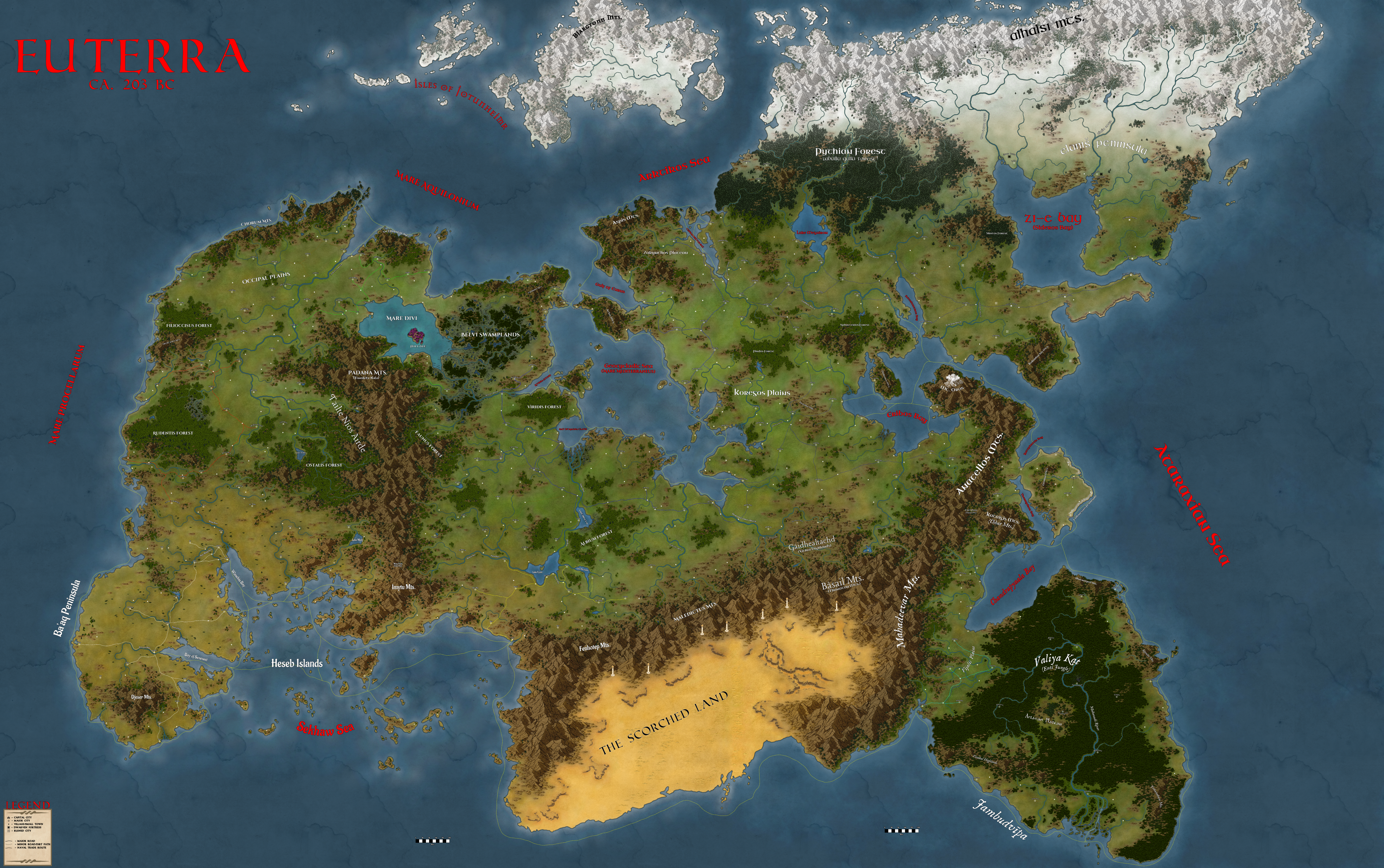The Pharaohs of Old Khemet
The Khemetiu believe that long ago the old Kingdom of Khemet sprawled across much of the world. It was an ideal state, the greatest to have ever existed. In those days, great Khemet was ruled by a line of kings who were the living incarnations of gods.
They ruled with absolute authority and unparalleled wisdom. According to the tradition, there were 9 of these kings, each of whom ruled for 700 years.
1. Serqet, incarnation of Ra
Serqet was the 1st pharaoh of Khemet. He was simultaneously the motherless son, and the living incarnation, of the sun god Ra, born asexually from the god’s own loins, imbued with a mortal soul, and sent to the mortal world. He is said to have brought the divine secrets of fire and agriculture to humans and gave them knowledge of the gods. Serqet elevated the Khemeti from tribal cave-dwellers to a proper civilisation. He brought order and civilisation to the people.
2. Djer, incarnation of Osiris
Djer was the 2nd pharaoh. The son of Serqet. The living embodiment of Osiris, god of the dead. He is said to have created the first code of laws for the Khemeti to follow, giving them order and peace. He brought peace and security to the people.
3. Hor-Aha, incarnation of Horus
Hor-Aha was the 3rd pharaoh, son of Djer, and the living embodiment of Horus the falcon god. He is said to have brought the secrets of metalworking to humans, was the first to organise the armies of Khemet, and greatly expanded the territory of the kingdom to bring their civilisation to more people. He brought power and glory to the people.
4. Semerkhet, incarnation of Thoth
Semerkhet was the 4th pharaoh, son of Hor-Aha, and the living embodiment of Thoth. He is said to have brought the knowledge of writing (hieroglyphs) to humans, allowing them to record their knowledge and wisdom for future generations, and created the first library. He brought learning and tradition to the people.
5. Qa’a, incarnation of Anubis
Qa’a was the 5th pharaoh, son of Semerkhet, and the living embodiment of Anubis. He is said to have brought the knowledge of mummification and funeral rites to the people, thus teaching them the proper ways to handle the deceased and allowing their souls to enter paradise in the Duat after death. He brought peace to the souls of the people and hope to the living.
6. Hotepsekhemwy, incarnation of Ptah
Hotepsekhemwy was the 6th pharaoh, son of Qa’a, and the living embodiment of Ptah. He is said to have fostered the crafts and brought such knowledge of them that the common people could have beds, blankets, utensils, door-coverings for privacy, and other such luxuries. He brought comfort and joy to the people.
7. Nebra, incarnation of Nu
Nebra was the 7th pharaoh, son of Hotepsekhemwy, and the living embodiment of Nu. He is said to have built the first boat, thus allowing humans the traverse the seas, fishing it for resources and food, and using it for trade. He connected the world and gave the seas to the people.
8. Nynetjer, incarnation of Isis
Nynetjer was the 8th pharaoh, son of Nebra, and the living embodiment of Isis. He gave the divine secrets of magic to humans, allowing them to create and use the “civilised” magics (e.g. wizardry, artificery, and the bardic arts; as opposed to “natural” magics like druidry and sorcery). He also taught their priests to harness divine magics so they could heal, divine the will of the gods, and perform other miracles. He brought magic to the people.
9. Senedj, incarnation of Geb
Senedj was the 9th pharaoh, son of Nynetjer, and the living embodiment of Geb. He taught the people how to build great structures out of earth and stone, allowing them to erect monuments to honour the gods, walls and towers for defense, and tombs to protect their dead. Through the legacy of their works, he brought immortality to the people.
10. The Tenth
The 10th pharaoh, his name cursed and erased from the chronicles of history, is the only one never included in the traditional line of pharaohs of the Old Kingdom. According to tradition, he is responsible for the collapse of the great kingdom, the near destruction of the glorious Khemeti civilisation, and for turning their beautiful homeland into the Scorched Land. Where once there was beauty, life, and prosperity, there is now only madness and death.
It is not polite to even speak of him. If someone is enraged to the point they’ve nearly lost their sense of reason, they may invoke him with the title “the Tenth,” to curse at the person with whom they are so angry. But even this is thought to invite ill fortune, so it is not something one often does in polite company.



Comments